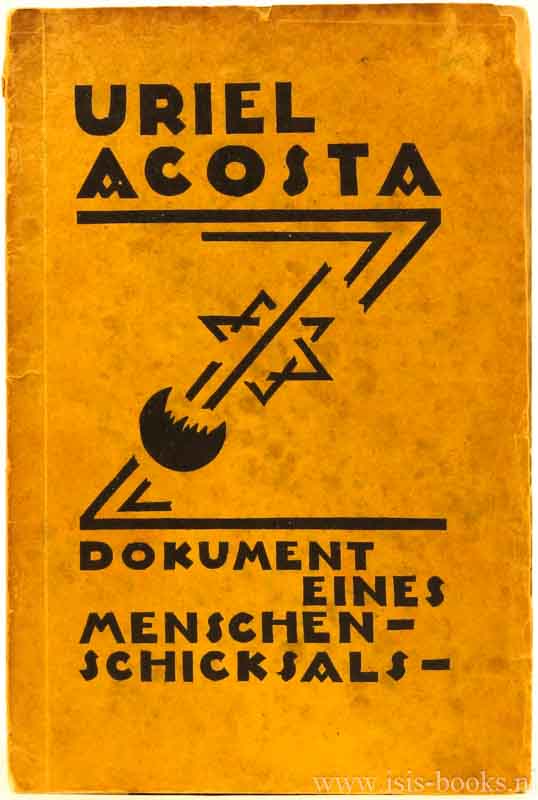OK
OK Cancel


ACOSTA, URIEL, COSTA, URIEL DA
Uriel Acosta. Dokument eines Menschenschicksals. Das Exemplar humanae vitae aus dem Lateinischen neu übertragen von Oskar Jancke. Einband-Entwurf von W.J.M. Schmitz-Gilles.
Aachen, Die Kuppel, 1923.
43 pp. Stapled. *cover a bit spotted damaged at the edges, top and bottom spine damaged, name on endpaper, otherwise in good condition*
Uriel da Costa (c.1585 - april 1640) was a Portuguese philosopher who was born a New Christian but returned to Judaism and ended up questioning the Catholic and rabbinic institutions of his time. His earliest known written message is known as Propostas contra a Tradição (Propositions against the Tradition). In eleven short theses he called into question the disparity between certain Jewish customs and a literal reading of the Law of Moses, and more generally tried to prove from reason and scripture that this system of law is sufficient. In 1623 Da Costa published the Portuguese book Exame das tradições phariseas (Examination of Pharisaic Traditions). In this book he adds his newer views that the Hebrew Bible, especially the Torah, does not support the idea of immortality of the soul. The book became very controversial among the local Jewish community, whose leaders reported to the city authorities this was an attack on Christianity as well as on Judaism, and it was burned publicly. As a punishment for his heretical views, Da Costa was publicly given 39 lashes at the Portuguese synagogue in Amsterdam. He was then forced to lie on the floor while the congregation trampled over him. In Exemplar Humanae Vitae Da Costa tells the story of his life and intellectual development. It doubts whether biblical law was divinely sanctioned or whether it was simply written down by Moses. It suggests that all religion was a human invention, and specifically rejects formalized, ritualized religion. Da Costa committed suicide after the humiliation in the synagoge.
Boeknummer 640718 € 95.00





